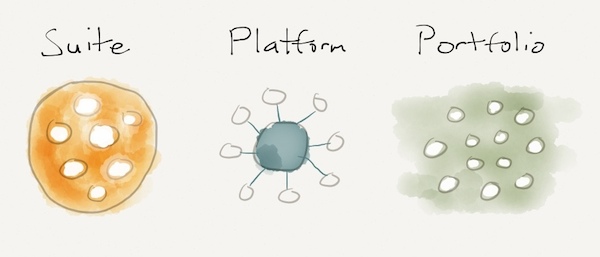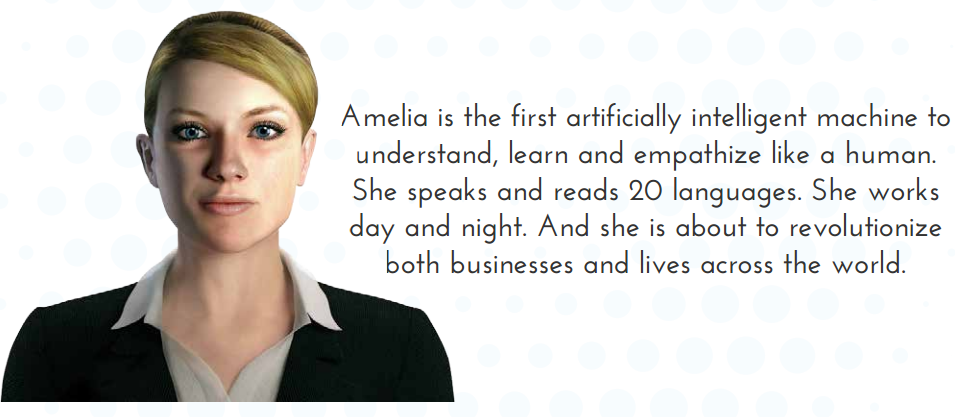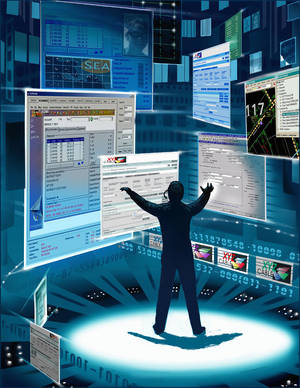Platform Economy
Following up on a piece I posted a couple of weeks back called 'Intelligent Automation' about one of the major technology trends for 2016 that was highlighted in the The Accenture Technology Vision 2016 report. and just like that last post, my life remains much, much less interesting than yours, I am once again spending my Sunday night doing two things: Watching NBA basketball (at least it's the All Star Game), and looking at the Accenture report.
There is some really interesting information, research, and conclusions about the most important tech trends for the coming 3 - 5 years in the report, as well as a (probably unintentional) nod to my friends over at Ultimate Software as their slogan 'People First', is literally all over the Accenture report.
Accenture identifies 5 big themes in their technology vision for organizations, and there is one other one, in addition to Trend #1,'Intelligent Automation', that I thought was pretty interesting, and notably a theme that I think is also on the rise in HR and workplace technologies. This theme or trend is called 'Platform Economy', and to get a sense of what this concept entails, here's an excerpt from the Technology Vision 2016 report:
Platform ecosystems are nothing less than the foundation for new value creation in the digital economy. Tech companies and enterprises that are born digital, such as Amazon, Google, and Alibaba, have long understood the power of digital technologies. But look a little closer. Many of these companies’ most groundbreaking innovations are not products or services; they are the platforms on which these products and services are built, and the business models that these platforms enable. Such platform-based business models fundamentally change how companies can do business.
What makes these models special? They allow companies to create entire ecosystems that do much of the work to grow the company and drive strategies. The platform has become the business model that is opening up entirely new paths to growth for companies. While tech companies and the born digital have successfully mastered platform strategies, the opportunity is now opening up to every company in every industry.
Companies with emerging platform strategies include Fiat (connected car), Kaiser Permanente (digital health), Disney (MagicBands), Caterpillar (connected machines), Schneider Electric (smart cities, buildings, and homes), Walgreens (retail pharmacy), Goldman Sachs (customer analytics), Bank of New York Mellon (financial services), McCormick/Vivanda (FlavorPrint), Houghton Mifflin Harcourt (education)—and the list goes on.
Let's take a bit of step back, or at least to the side, and think about what implications there might be for HR and workplace technologies, (more or less the topic of this blog when we are not having fun talking about diet soda and muscle cars).
Last year at the HR Technology Conference one of the technology solutions that we featured for its innovation and potential value for customers was the ADP Marketplace. With the Marketplace, ADP customers, (and there are lots of them), have access to a modern, simple, and powerful platform from which they can research, procure, implement, and provision access to dozens of complementary HR tools and systems that will work with and easily integrate with their ADP solutions. And while the ability to easily integrate supporting technologies with the organization's primary HR system of record doesn't on the surface sound all that exciting or innovative, just spend some time actually trying to make technologies from different providers work together efficiently and effectively in the real world.
The challenges in connecting disparate systems together are numerous - you might not have in-house resources capable of performing the technical work needed to create and maintain the integration, you might not be totally sure how the integration should even work, and you may find that the providers of the different systems you are trying to stitch together don't really have all that much incentive to make their products work together all that well. Solutions, make that platforms, like the ADP Marketplace are great examples in the HR/workplace technology space of what Accenture is talking about with the Platform Economy. The platforms are designed to give the customers and users with a more holistic and valuable experience, much of which will be derived from partners of the platform owner and which will, if executed well, make the platform itself more valuable.
I think Accenture is right about the Platform Economy and I think we are going to see more activity and emphasis on platforms and ecosystems in the HR tech space this year and for the next few years as well.
Have a great week!

 Steve
Steve



